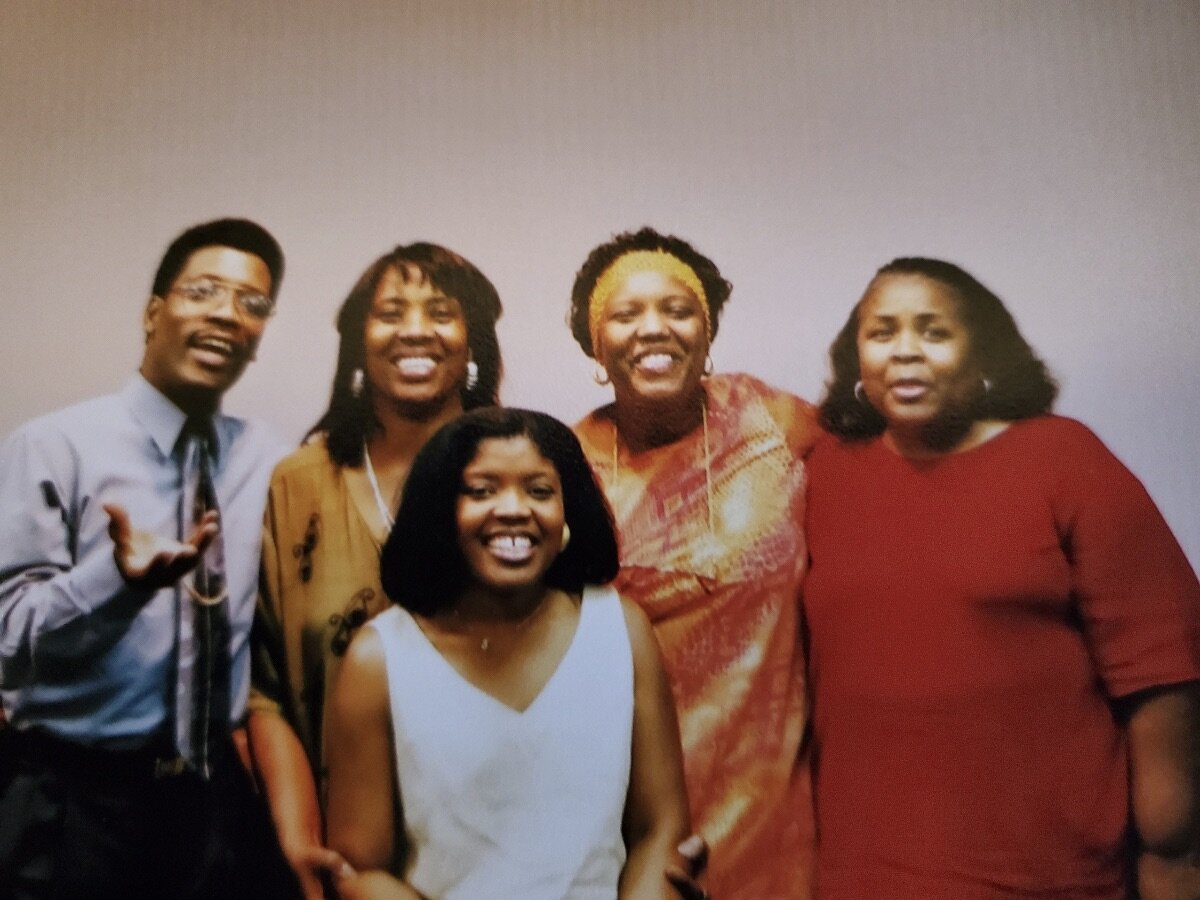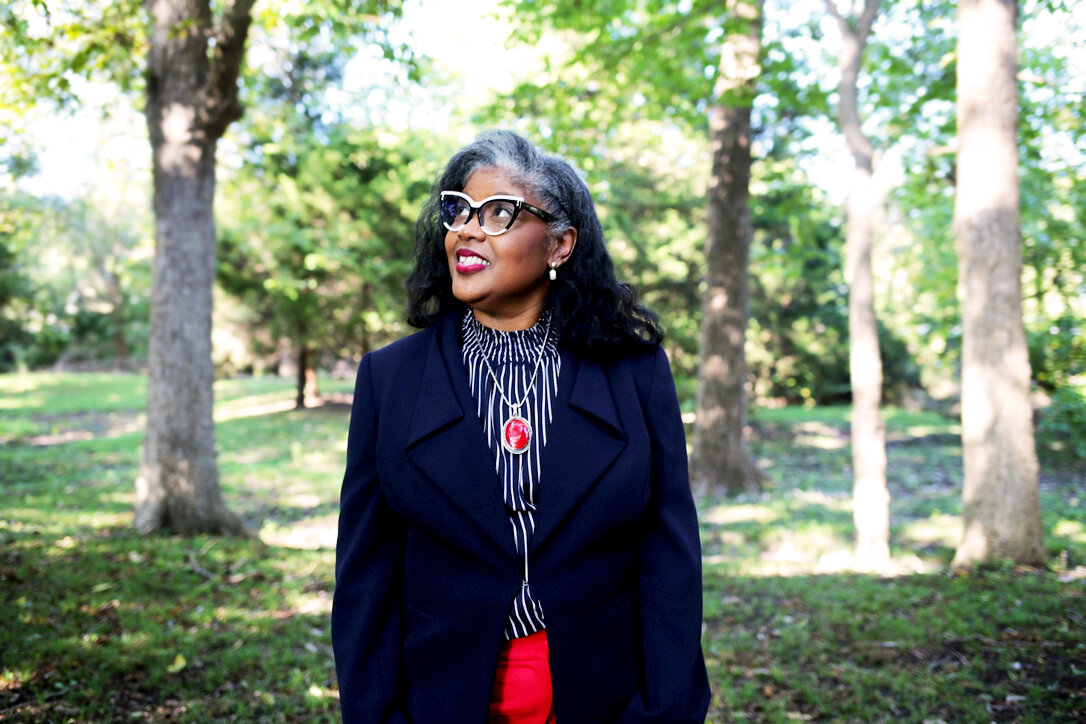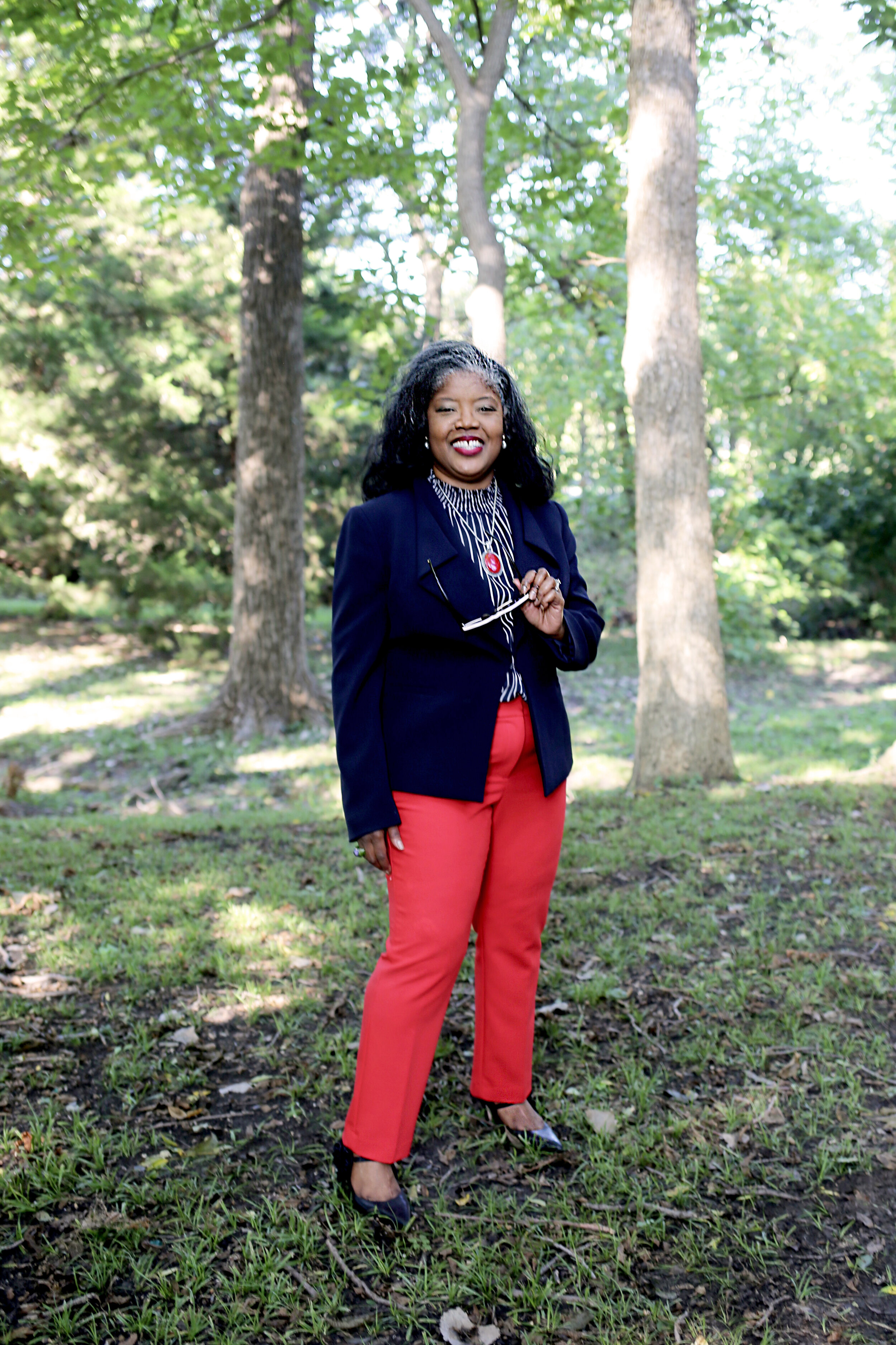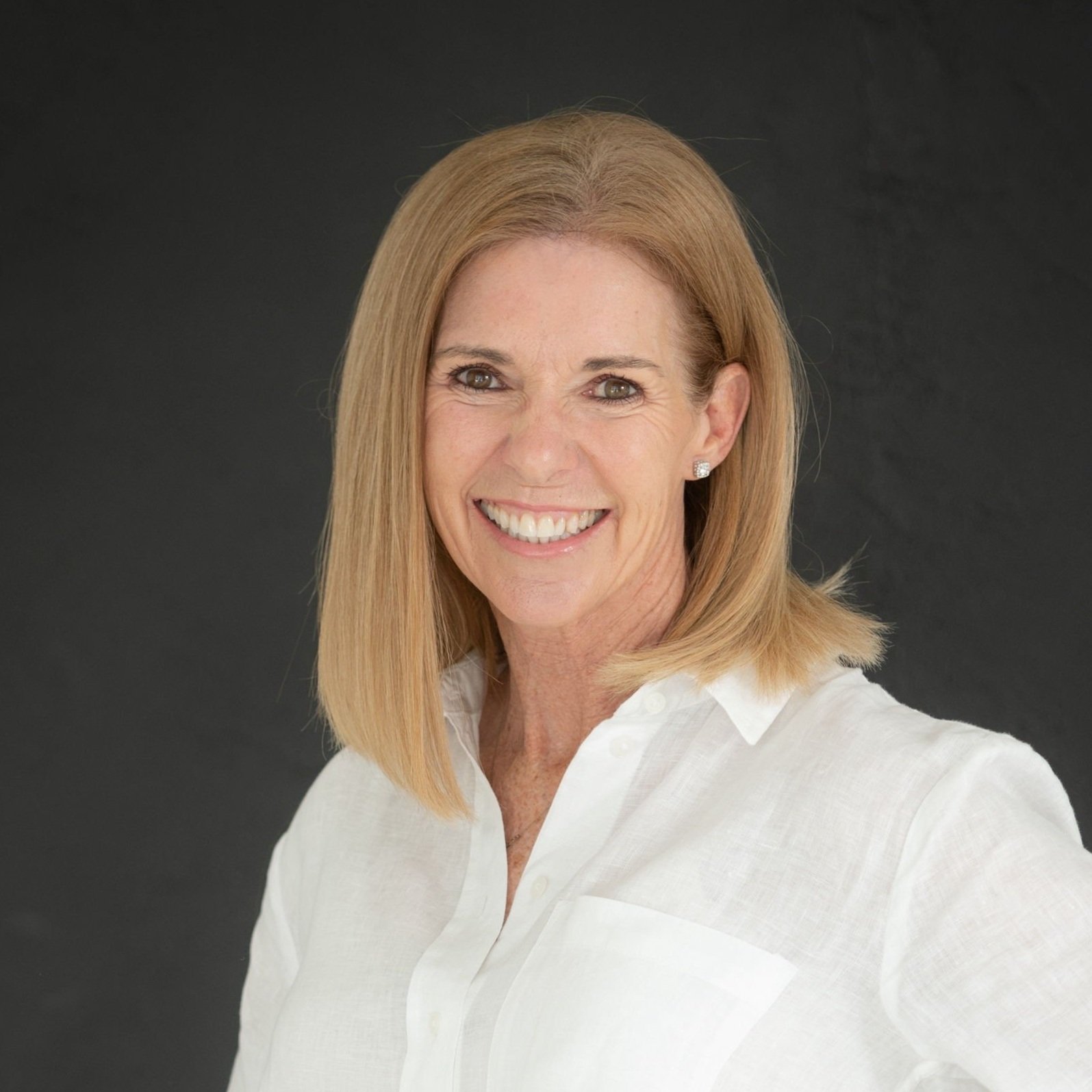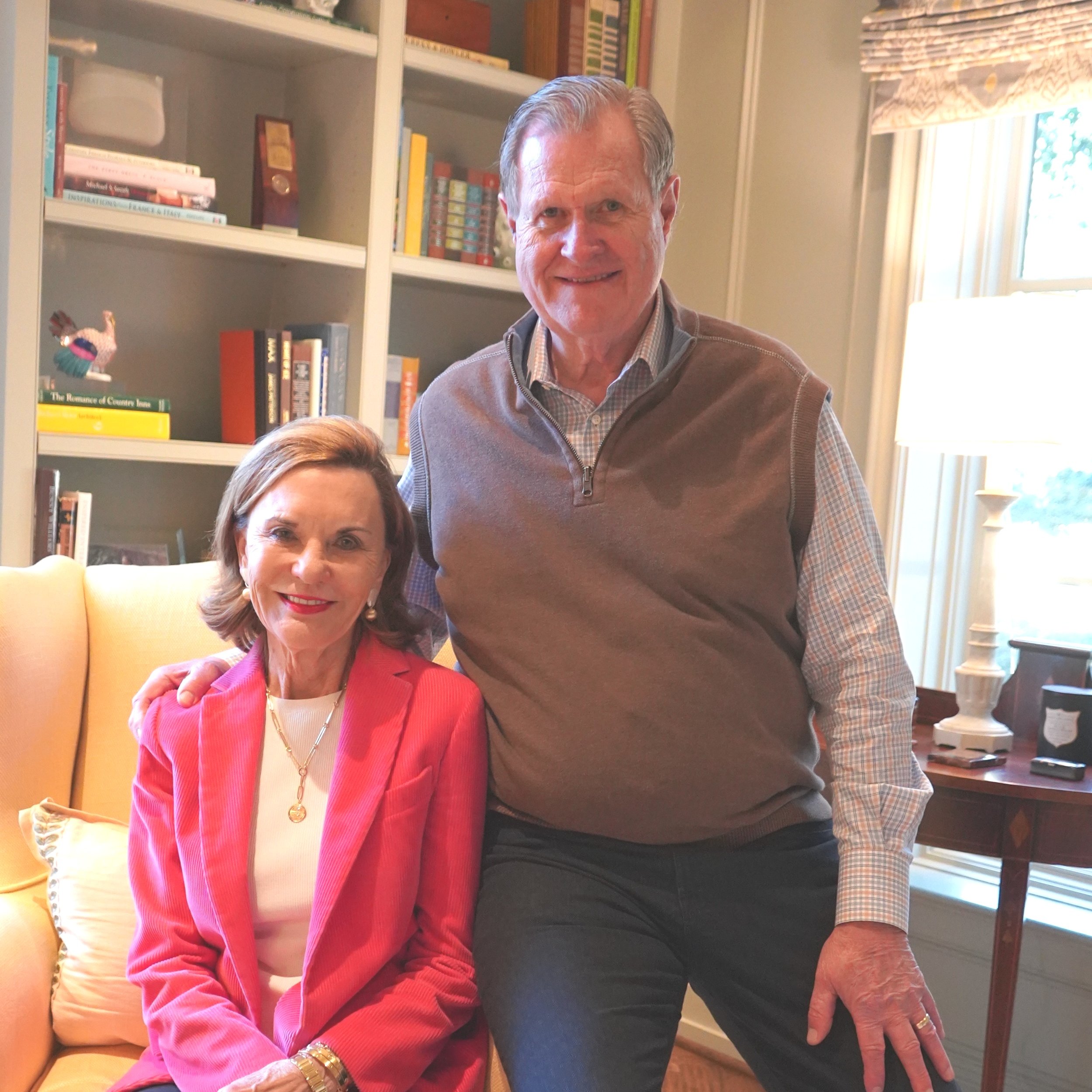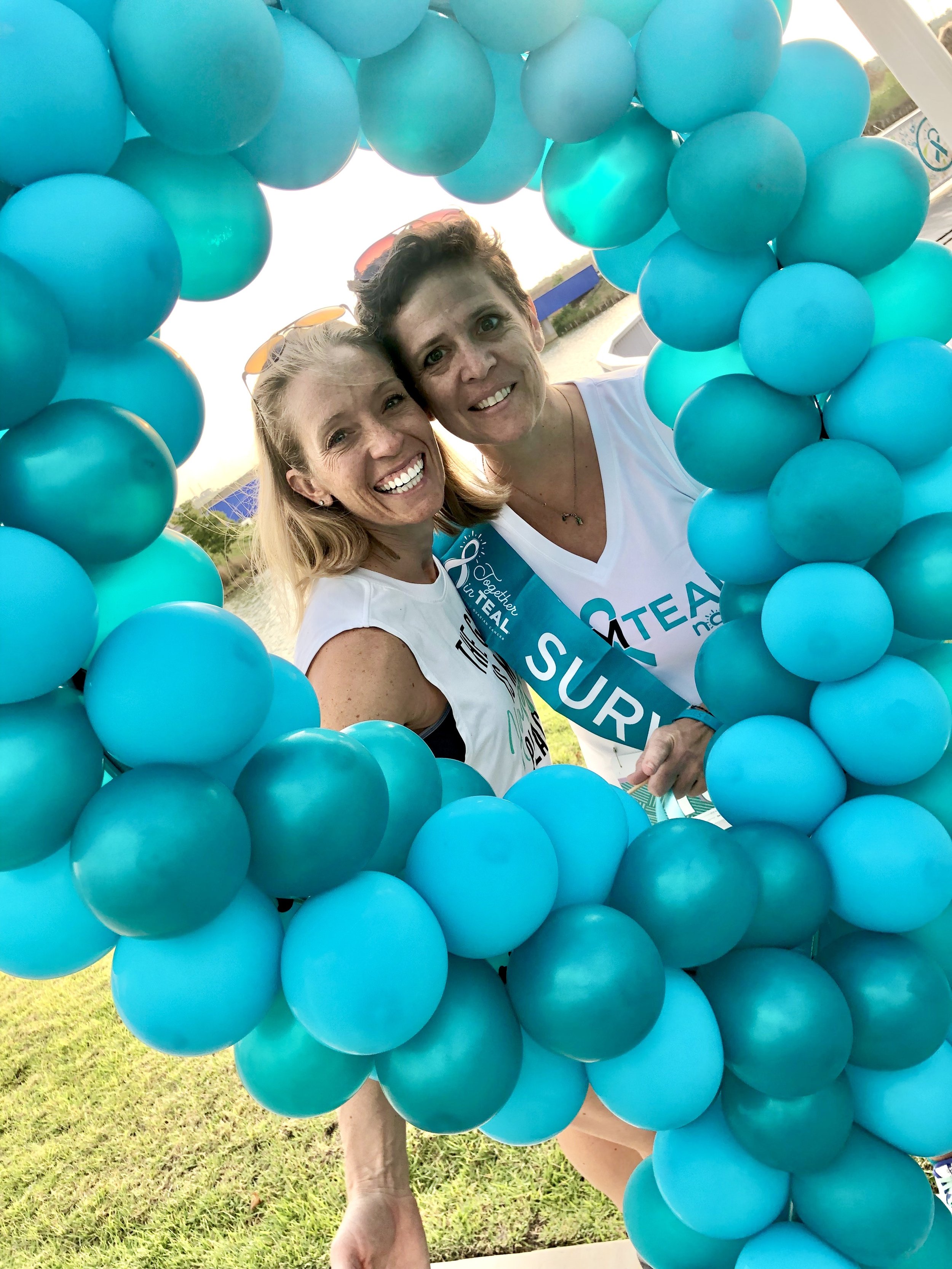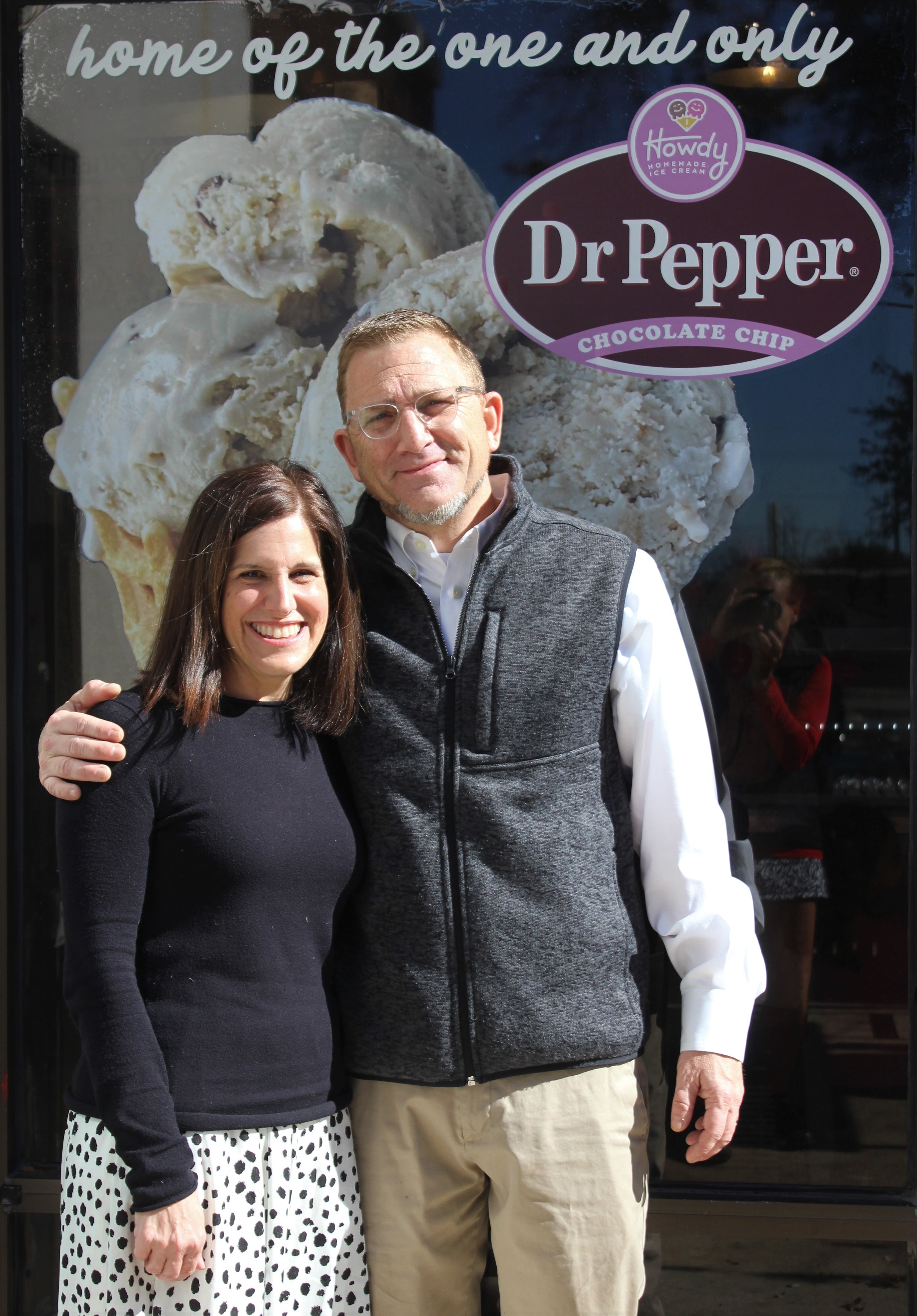Story and photos by Jan Osborn.
Dr. Constance Lacy grew up in Fort Worth during the battle over school desegregation, and now serves as Dean of the School of Human Services at the University of North Texas at Dallas. Dr. Lacy can clearly see the moments where educational resources and programs offered her the next step in her journey. She can look back on her career as a licensed cosmologist, nonprofit director, social worker, clinical supervisor, professor, and now administrator, and recognize the people along the way who have helped her to succeed and become an agent of change for students across North Texas.
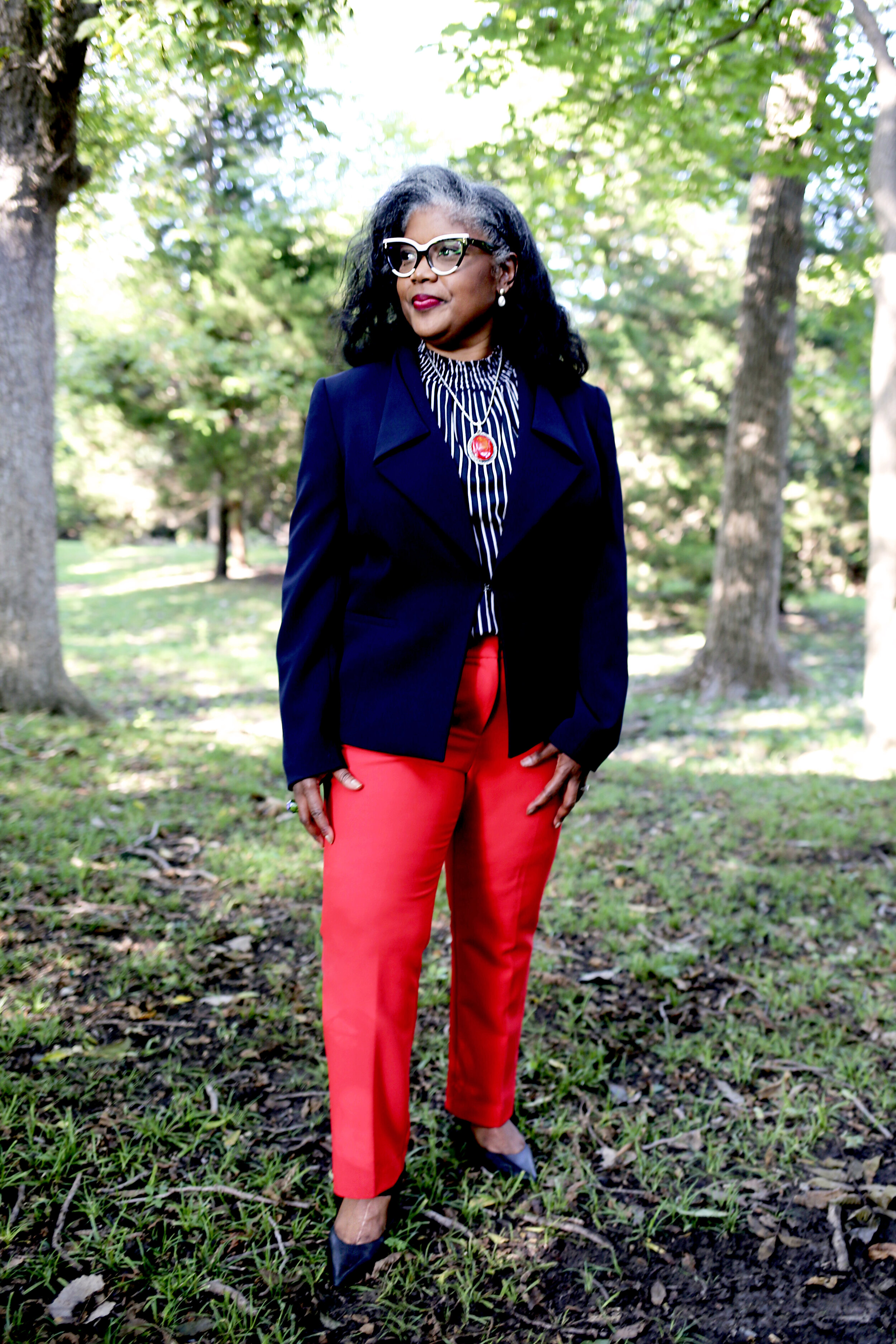
She may have started in Fort Worth, but when you ask her, Dr. Lacy says she got to Dallas as soon as she could. Her dad passed away when she was four years old, leaving her mother to raise five kids by herself. As Dr. Lacy says, “she did a fabulous job. I remember we had the only brick house on the street on our block. She worked very hard to make sure that the two bedroom one bath house was able to house five kids and one adult. She made it work and closed up the garage to expand her home. She was always a woman with a vision and a strong spiritual foundation. She’s now 87 years old and a cancer survivor. I cannot talk about my life without giving her due respect.”
Dr. Lacy attended Arlington Heights High School, and looking back, sees how her life was impacted by the times, particularly by desegregation. After her father passed away in far West Texas where schools had already been desegregated, Dr. Lacy’s mom moved the family back to Ft. Worth, TX. “My older siblings were already in school,” Dr. Lacy recalls. “My first grade year, I went to school in Como, but my mom felt like I needed more. She advocated for us to go to school in the neighborhood where my older sister, who was attending Arlington Heights graduated from. My brother and sister had been rejected from W.C. Stripling Junior High because the school hadn’t been desegregated. My second grade year, around 1968, I went to South Hi Mount Elementary as the only African American child in the whole school.”
Since there was no busing at that time and her mom stayed extremely busy working as a seamstress for Tandy Leather company, godparents, extended family, and friends stepped in to help transport the children home from school. This extended family made sure she got picked up from school and dropped her off at the high school with her siblings, or would babysit her until her mom finished work. “I am the product of a community raising a child by helping my mother and understanding the impact of what my mom was trying to day by facing segregation head on.”
Constance (in front) with her siblings: Rodell Norris, Rodennia Pines, Linda Britton, Clarine Jones (deceased).
Dr. Lacy’s mother always told her that she was the child that breaks the barriers, but colleagues now point to that attribute as one that builds character. After graduating magna cum laude from Arlington Heights High School, Dr. Lacy first went to the University of North Texas. It was as a freshman at UNT that Constance fell in love, and made the decision to get married after her freshman year. “My mother was just distraught,” she says. “But we got married, had kids and life happened.”
It was in 1985, that Dr. Lacy met Grant and Carolyn East. Grant was the original CEO and president of Dallas Can Academy (at that time called Freedom Ministries). Dr. Lacy worked at Dallas Can Academy for eight years. She says, “since I had dropped out of college to get married, the Easts encouraged me to go back to school, and they were supportive of what I wanted to do.”
Dr. Lacy said that her family encouraged her to go back to school as well. She started back at Eastfield College and that was possible because she qualified to be a federal TRIO recipient. “I was a first generation college student, and a minority female, so I qualified for additional support,” she explains.
It was at Eastfield that her supervisor said “you’re a social worker.” Dr. Lacy said, “I didn’t agree with it at the time because I thought it took too much education. But my supervisor insisted saying, ‘You are a social worker. And you need credentials.’ So I agreed.”
Being in the TRIO program at Eastfield also opened the door for Dr. Lacy to get additional scholarships and transfer to a social work program at the University of North Texas. She qualified for the Ronald E. McNair Scholarship Program, a highly competitive program funded by the U.S. Department of Education to prepare university juniors and seniors who are low-income, first generation, and/or underrepresented in graduate education for doctoral education. That very scholarship paid for her junior and senior year of undergraduate studies.
Dr. Lacy was also selected for the Harry S. Truman Scholarship, a federally funded scholarship granted to U.S. undergraduate students for demonstrated leadership potential, academic excellence, and a commitment to public service. Dr. Lacy explains, “I was too old to be a Rhodes Scholar or qualify for the Woodrow Wilson Scholarship because I was over the age of 25.” The Truman Scholarship paid for Dr. Lacy’s graduate studies and a portion of her PhD. She became the first African American to win that national scholarship for the university.
The University of North Texas at Dallas is a public university in Dallas. It opened in 2000 as a branch campus of the University of North Texas (UNT), offering upper level undergraduate and graduate courses in multiple disciplines. In 2009, it became a free standing University, offering a full undergraduate program as well as graduate work. UNT is the only public university based within the Dallas city limits.
Today, Dr. Lacy is thankful to be serving at a university that has a TRIO program. UNT Dallas not only is a minority and Hispanic serving institution, they also have the Upward Bound Pre-collegiate TRIO Program and the Ronald E. McNair Program on campus. Dr. Lacy says, “I’m excited that I can say I am a product of that process. I know if I could do it, then other students can do it, too.”
Dr. Lacy shared with us that one of the reasons she decided to go into social work was because of an example she heard in one of her classes. In the class, the instructor was telling about a scenario where a young lady wanted to go to college, but her mother was on public housing and food stamps. The mother was taking all of the money that the daughter was making at McDonald’s and saving for her college tuition. When the case manager found out about it, they were kicked off public support and made to pay it back, so the student did not get to go to college. Dr. Lacy says, “I remember being in that class and raising my hand and saying, ‘I’m sorry. I need help understanding. If this is what social work is, then we are taking away opportunities. I’m not sure I’m in the right field.’” But it was experiences like those that made Dr. Lacy realize there was an opportunity for change and she needed to be a social worker.
Dr. Lacy finished her Master’s degree in 2000 and her PhD in 2005. For her dissertation, she went back to Dallas Can! Academy and reported on the protective factors that impact resilience among African American youth. “I used the data from Dallas Can! Academy so it is rewarding today to see some of the kids that have gone on to attend college,” she says.
Another factor in Dr. Lacy’s decision to pursue a career in social work is her background as a licensed cosmetologist and later, an instructor. Dr. Lacy remembered one of her students was the daughter of Joyce Ann Brown, who was wrongfully convicted of robbery and murder in 1980 and spent almost a decade in prison before her conviction was overturned and she was released from prison. Dr. Lacy realized that as an instructor in cosmetology school, she also had moments where she was acting as a social worker, helping connect students to the resources they needed.
During her tenure as a professor at UNT Dallas, Dr. Lacy was asked to create the Human Services Management and Leadership Program, and in 2016, was promoted to Dean of Human Services. She has been instrumental in building relationships with the community and area leaders, including the launch of Community Engagement Day, a collaboration with World Vision and the State Fair of Texas. Community Engagement Day seeks to bring together nonprofit and community leaders throughout the Dallas-Fort Worth metroplex in an effort to better serve the region through partnerships and shared resources.
Now in the multi-crisis year that is 2020, Dr. Lacy is hands on with some of the quick shifts that schools are making as a result of COVID-19. “While trying to balance a public health crisis, we are in roles as instructors at school that play into the student’s social safety net,” she says. UNT has been holding virtual classes since March 9, and will remain virtual for the fall semester.
Dr. Lacy is realistic about the challenges that come with providing the same education and training that is typically offered face-to-face. “Our students are struggling by often living in places where there is not a lot of space,” she explains. “The students have had to learn how to navigate all of the different emotions that come with their environment and even struggles with their health. It has also impacted families on several different levels, including socioeconomic factors. Some of our students have had to make a decision to go to work in order to help support their family. It varies across the table.”
Dr. Lacy applauds UNT Dallas’ student services department for helping to find resources so that the students are able to connect during this time of pandemic and social distancing. UNT Dallas is providing online therapy, behavioral health services, and relief funds to support students as they navigate these waters. She says, “We continue to interact with our high school students through Zoom and other virtual technologies, and we are making a concerted effort to stay connected with our students as well as their parents.”
As Dr. Lacy looks back over her opportunities and accomplishments, she pauses to show appreciation for the programs like TRIO and the other scholarships that helped her achieve her higher education. “I was a single parent with two kids looking for a way to move forward in my life and my career,” she says. “Who would have thought that 10 years later I’d have a PhD and be a university professor? Without the foundation and support I received, I wouldn’t be here.”
Featured
More Good Stories
Featured
When Kathy and Larry Helm heard about The Senior Source’s 60th Birthday Diamond Dance-Off, they knew they had to put on their dancing shoes! For the Helms, this event combined two of their passions into one. Celebrating and supporting The Senior Source, a Dallas-area nonprofit that has been serving older adults for 60 years, and dancing together, which they have been doing since they were high school sweethearts. Both Kathy and Larry have chaired the board of directors of The Senior Source and have been proud supporters since 1998. It seemed only fitting they should be voted into the finals to dance on stage at Klyde Warren Park this past summer.
In 2020, more than 912,000 women were diagnosed with some form of cancer in the United States alone. During that same pandemic year, countless medical appointments were canceled while people were social distancing, and yet still each day nearly 2,500 women heard the news, “you have cancer.” There is no doubt that these words can be crushing to hear, but what’s equally crushing is the lack of tangible, encouraging support that exists to help women feel beautiful, strong or “normal” before, during and after cancer treatment.
When Tom Landis opened the doors to Howdy Homemade in 2015, he didn’t have a business plan. He had a people plan. And by creating a space where teens and adults with disabilities can find meaningful employment, he is impacting lives throughout our community and challenging business leaders to become more inclusive in their hiring practices.
Have you ever met someone with great energy and just inspired you to be a better you? Nitashia Johnson is a creator who believes by showing the love and beauty in the world it will be contagious and make an impact. She is an encourager and knows what “never give up” means. Nitashia is a multimedia artist who works in photography, video, visual arts and graphic design. Her spirit for art and teaching is abundant and the city of Dallas is fortunate to have her in the community.
